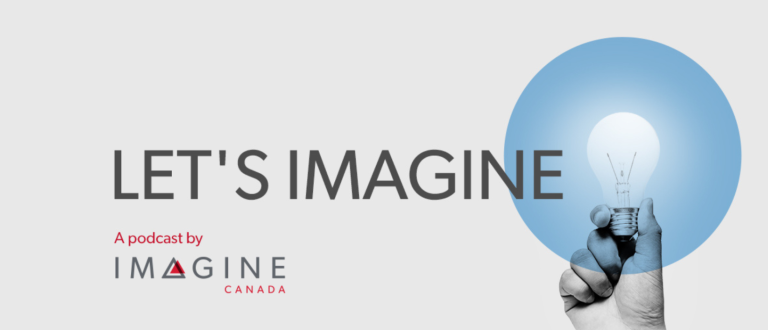The emerging drive for Community Benefits is creating new opportunities for nonprofit leaders to think differently about working with the people and communities they serve. As communities begin to challenge their own poverty and economic exclusion, nonprofits have a supporting role to play.
Infrastructure investment’s unrealized potential
Whether because of the loss of manufacturing jobs or significant shifts in resource industries, local economies are changing across Canada. Service sector growth, the rise of precarious employment and low wages have created growing economic insecurity for workers and communities. At the same time, Canadians face the challenges of climate change and the need for climate adaptation. Community Benefits organizing simultaneously takes on the challenges of growing inequality, precarious work, and the climate crisis. Imagine this: Every time a construction crane goes up, a pathway to jobs in the trades or an opportunity for affordable housing, or the opening of a child care centre is created. Every infrastructure dollar spent could hold this promise. As governments have announced commitments of billions of dollars in infrastructure investment, local leaders have seized the opportunity.
Community Benefit coalitions are built when labour and community leaders join together to advance their shared interests and be part of the decision-making process. Their efforts are local in focus and they can use law, policy or partnership agreements to ensure that new economic development meets community needs. Community Benefits Agreements are negotiated, legally enforceable contracts, signed with a private developer or government agency, stipulating commitments made to the community – and how they will be monitored and enforced. The underlying principles are that economic decision-making should be inclusive, open and accountable, and that economic development strategies should create opportunities for workers, as well as real, measurable improvements for communities.
Experience shows it’s possible
When transit agency Metrolinx committed to building a light-rapid-transit line running through many communities with high rates of poverty and unemployment, union and community leaders formed the Toronto Community Benefits Network. Together with recruited member organizations, they developed a vision for equitable economic development. Now they have a seat at the table: they’ve signed a Community Benefits Framework with Metrolinx, and they’ve negotiated for 10% of apprenticeships to be made available to historically disadvantaged communities and equity-seeking groups. They have also won concessions for a local community hub and storage facility, consistent with neighbourhood demands. Now groups are forming in more cities focused on transit expansion and other forms of infrastructure, including in Hamilton, Windsor and Peel Region.
A leadership development role
The Broadbent Institute’s priority pillars are climate change, inequality and democratic renewal. Our leadership development goal is to build backbone for progressive organizing in Canada. Supporting Community Benefits organizing goes directly to the core of our mission.
Last spring Atkinson Foundation engaged Broadbent to conduct research on the development and training needs of organizers working on community benefits and social procurement strategies in Windsor, Hamilton, Peel Region, Toronto, and Halton. Alongside this research has been side-by-side coaching in the field to strengthen the network of organizers in this emerging field of local economic development.
The Institute’s contribution is in facilitating learning on the ground by leaders-in-action as they build their organizing capacity. This includes making a profound commitment to equity – fighting injustice in all its forms – and thinking about power from the ground up. This extends to promoting policy changes that put the people who should benefit at the center. Together we are developing a new way of knowing and doing – deeply grounded in solidarity and respect across differences.
Networked action and impact
Creating the foundational relationships and networks to deliver on policy change, while delivering material improvements for people, can create real change. Organizations have been successful in their efforts to build equitable local economic development coalitions and campaigns. They have done this through a commitment to shared values, strong partnerships between community and labour, and learning by doing, while focusing on achieving measurable gains.
At the same time, there is an awakening of communities to agency and power in relation to shaping the local economy. People begin to look at infrastructure investment and development differently. They begin to demand tangible benefits, to demand accountability and to reimagine the economy they want to build for themselves. This disrupts the idea that gentrification is inevitable and creates a new narrative where development can happen without displacement. As economic, racial, gender, class and climate equity are put at the center, leaders and activists together learn the principles and the practice of fighting injustice.
Contributing to the Community Benefits movement
Community Benefits organizing places the people implicated, served, and living in the catchment area of an organization or forming part of the community, at the center. Their voice and agency in their relationship with the sector itself, and in shaping the economic conditions that contribute to their need for services, provide opportunities for nonprofits to deliver on mission. Nonprofit leaders can play an important role in supporting the activities of civic and self-organized groups, a proven contribution to movement building.
Clearly, this work means building from the experience, voice and agency of the people for whom change is urgent. Supporting the development of their authentic leadership is key. This practice requires making a profound commitment to equity, and to considering that people who are marginalized have and can build power to effect change.
About the Author
Alejandra Bravo is Director of Leadership and Training at the Broadbent Institute, where she builds backbone for progressive organizing in Canada. Active in the community benefits movement, she supports organizers and leaders and has a 25-year history of working for progressive social change with grassroots, immigrant, and labour groups.
Guest contributions represent the personal opinions and insights of the authors and may not reflect the views or opinions of Imagine Canada.


